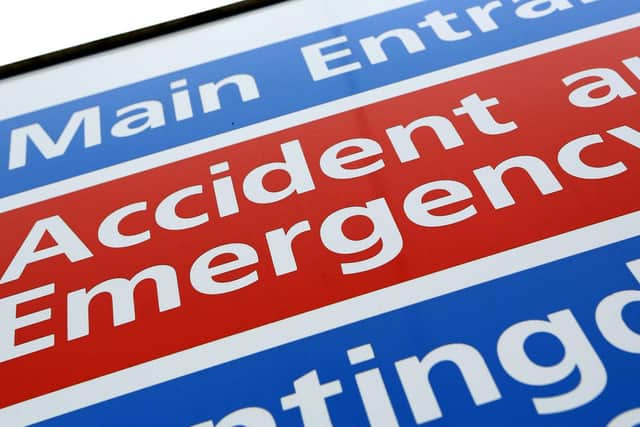Politicians need to show courage and deliver a NHS 2.0 to prevent crises - Yorkshire Post Letters
I may have retired over two decades ago, but I did spend my 40-year working life in the Health Service, and still take a keen interest in its well-being.
I am irritated by the glib assertions of current politicians that the problems and undoubted deficiencies of the Service are the result of unforeseen crises, such as Covid and the flu epidemic, and I am frustrated that most people seem willing to accept this nonsense.
Advertisement
Hide AdAdvertisement
Hide AdIt is perfectly true that the events just mentioned have severely exacerbated the problems, but to say that they caused them is simply wrong.


Since my own early years, policies within the Service have been directed towards providing what could be called ‘average’ cover for ‘average’ demand; that is, we need just enough staff and other resources to provide adequate health care, just so long as the demand for that care arrives in a steady, even stream.
This, of course, is never the case, and demand happens in a continuous series of peaks and troughs, in exactly the same way as demand for fire-fighting, or even active military service occurs.
In order to satisfy the needs of peak demand, we must necessarily accept that there will be periods of low demand where personnel could either be described as ‘under-employed’ or, in the case of the fire service and our military, ‘undergoing training exercises,’ or ‘engaged in ceremonial duties.’
Advertisement
Hide AdAdvertisement
Hide AdNo-one would ever seriously suggest that we prune our military to just enough to satisfy ‘average’ active service demands, so why are we happy not to have a Health Service capable of meeting peak needs?
Our NHS ought to have been capable (perhaps with a few minor adjustments) of dealing with whatever Covid threw at it, just as we would expect our fire services to be able to instantly respond to, for example, a major factory fire.
In order to reach such an ideal state, of course, would demand considerable extra resources and state expenditure, and to achieve this would need both political will, and the assent of the people.
I believe that the latter is present; all that is lacking is political courage and vision, and that can only come with a change of government.
Our NHS needs a new ‘Beveridge Report’ and a new Nye Bevan to push through its proposals; we need NHS 2.0, and I am sure that the vast majority of citizens would agree with that.